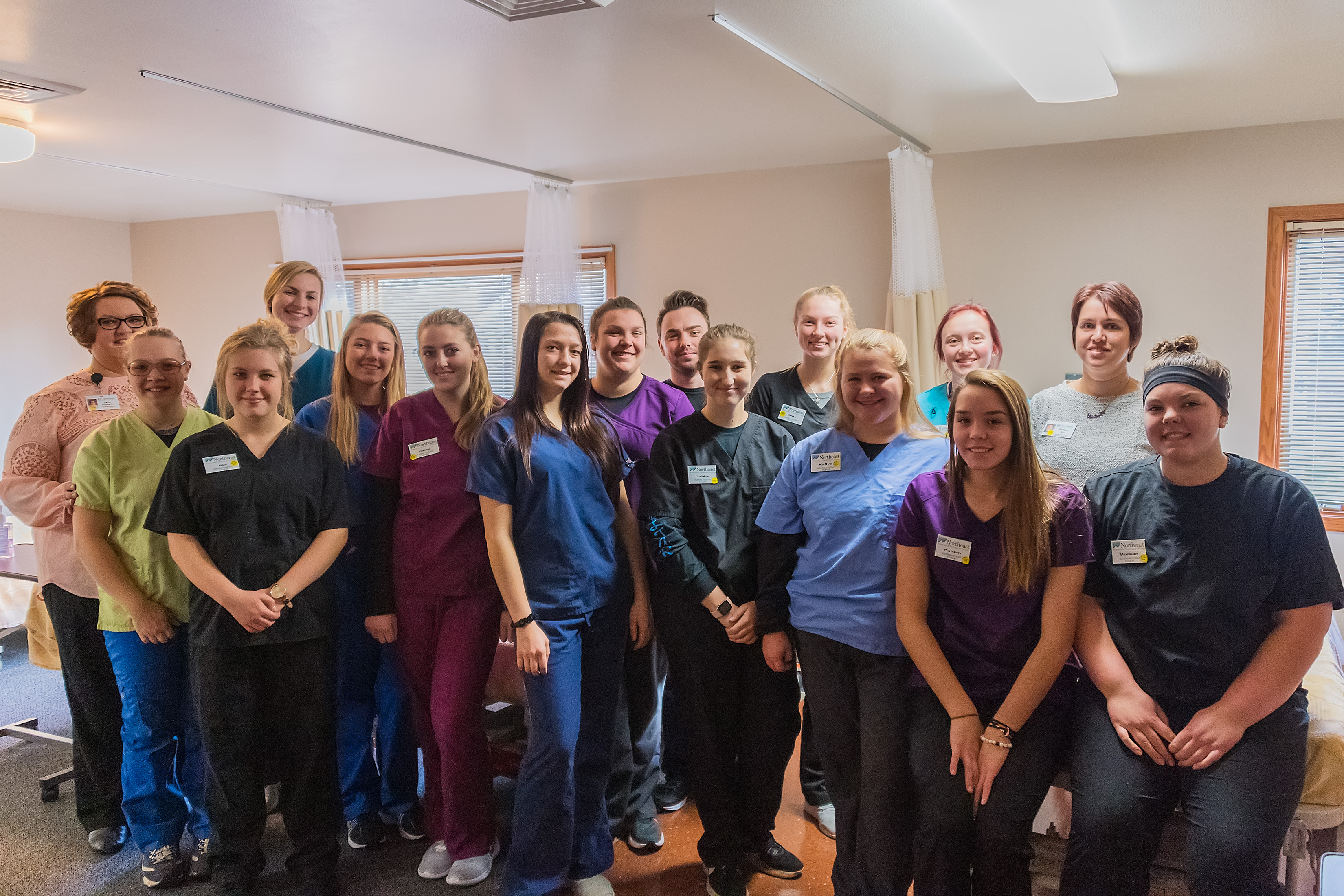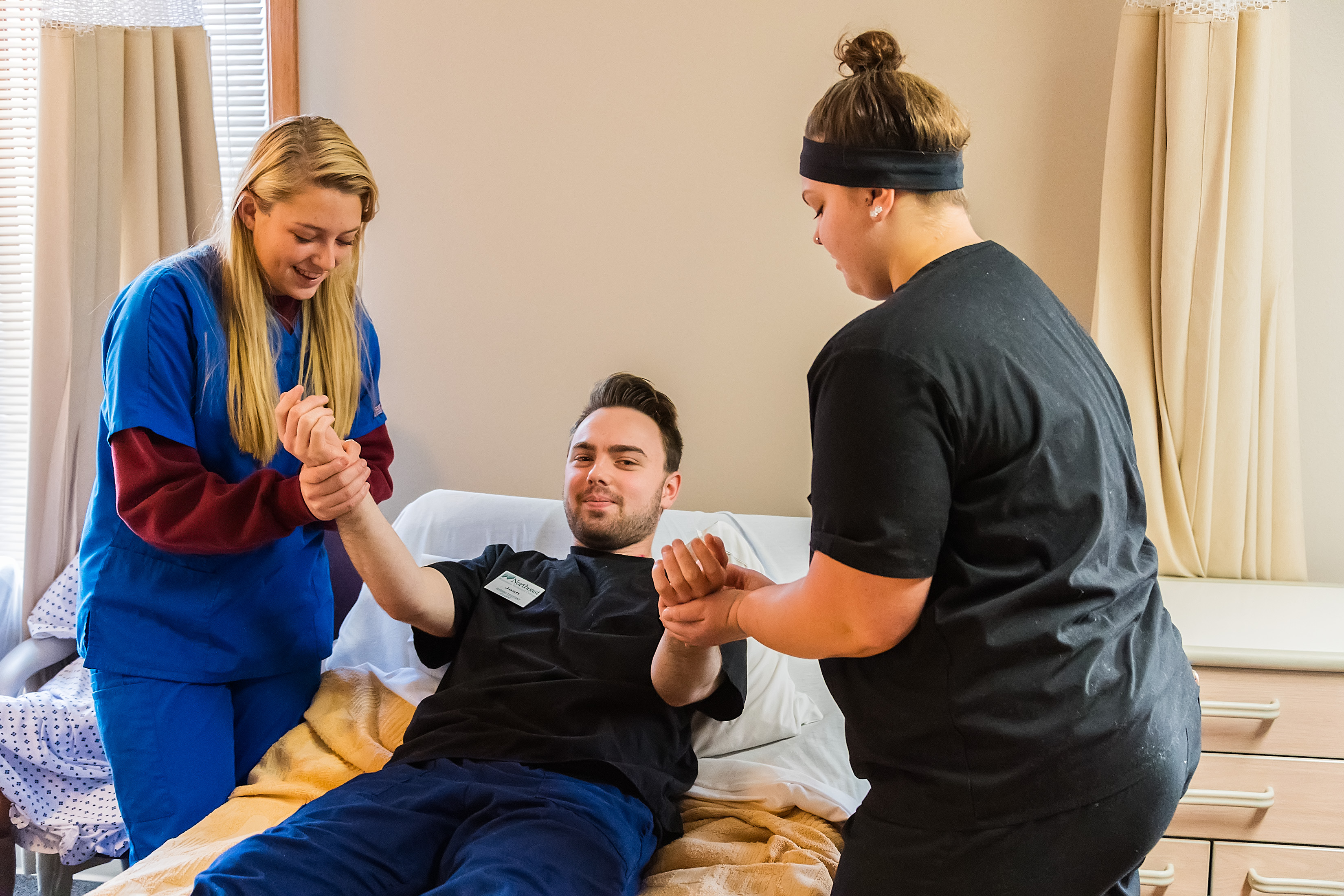Partnership Provides Path to Health Care Careers for Door County Students
- Share
- Tweet
- Pin
- Share

Since early September, Door County high school students have been achieving a lot in their course at Door County Medical Center (DCMC): learning to care for others, getting a head start on college, and preparing for a career in health care.
Southern Door, Sturgeon Bay, Gibraltar, and Sevastopol School Districts, Northeast Wisconsin Technical College (NWTC) and Door County Medical Center (DCMC) have partnered to smooth the path to health care careers and college credit for their students. Eligible students in grades 11 and 12 can take the Nursing Assistant course taught by NWTC faculty with classroom/lab/clinical portions of the curriculum offered at Door County Medical Center.
Last year, DCMC Clinical Nurse Educator Renee Glesner, RN, MSN, proposed a collaboration between NWTC and DCMC to offer a program that allowed high schools the opportunity to take the Nursing Assistant course as part of their school day. DCMC agreed to find a space designated to the program and both NWTC and DCMC agreed to work together to get supplies and equipment to meet the requirements of the Department of Health Services.

The Nursing Assistant Learning Lab/classroom space was provided by DCMC. Grant funding through Wisconsin Technical College System (WTCS) and Department of Workforce Development (DWD) Fast Forward Program, as well as financial commitments from NWTC and DCMC helped provide the needed elements to get the program up and running.
Students who complete the Nursing Assistant course can take the state Nursing Assistant registry exam, which provides State of Wisconsin Certification. That certification allows the student to work as a Certified Nursing Assistant (CNA). The program meets Wisconsin’s critical need for health care workers in general, and nursing assistants in particular. Earning the CNA is the first step toward many health careers.
Door County Medical Center employs Certified Nursing Assistants in its Inpatient Department as well as its Skilled Nursing Facility. Traditionally, CNA vacancies are difficult to fill due to the limited supply of qualified CNAs in our market area. Positions can remain vacant for months, which creates undue hardship on existing caregivers who must increase their scheduled hours to fill this gap in coverage. Additionally, in DCMC’s Skilled Nursing Facility, these prolonged vacancies can result in not being able to accept residents due to lack of staff to care for them.
The following statistics are from a 2016 study by LeadingAge Wisconsin:
- More than 87,000 Wisconsin residents live in 4,102 long-term and residential care facilities.
- Residents living in long-term and residential care facilities rely on an estimated 73,700 caregivers.
- The number of Wisconsin residents living in long-term and residential care facilities has grown 18 percent since 2003
- In the next 30 years, the ratio of Wisconsin residents age 65 and older to the entire state population will grow from 1 in 7 to 1 in 4.
- By the year 2022 the need for personal care workers is projected to increase 26.4 percent.

Additionally, the 2015 U.S. Census Bureau lists the average number of people more than age 65 in Wisconsin at 14.8 percent; Door County is well above that at 25.4 percent. In Door County, people ages 65-75 grew by 16 percent in the past five years and those more than age 85 during that same time period grew by 10 percent.
By 2030, it is estimated that Door County’s population of people ages 65 and older will be greater than 30 percent.
In light of the Nursing Assistant shortage DCMC recognized the need to be part of breaking down barriers that may be in place that prevent individuals from taking the course. As an organization, DCMC also recognized the need to partner with NWTC and Door County school districts to tap into future generations by offering them opportunities to engage in the local workforce. This partnership goes a long way to meeting future needs.
